The Work From Home post
South Africa first went into lockdown on March 26th, 2020. Retro Rabbit was forced to adopt a work-from-home policy with the strict initial lockdown regulations, but even as office life became a possibility again, we decided to remain remote — or at least hybrid, depending on our clients' needs.
So for the two year anniversary of what became a permanent change to the way we work, we interviewed some of the residents of Rabbitania (some preferred to remain anonymous). What follows here are their thoughts, feelings, insights and advice. This is the Work From Home post.
The early days
Dion Nair, CEO of Retro Rabbit, recalls what happened when we first went remote, and how the company adjusted:
It’s been an interesting journey for Retro. During the initial stages of lockdown, we were able to transition to Remote very easily primarily due to our previous model of mainly working at client sites from Monday to Thursday, and then being at Retro office on a Friday.
The early months of lockdown generally showed a huge increase in productivity. Some of this can be attributed to the fact that people didn't have to fight their way through traffic or sit on the Gautrain for an hour, and people were generally less rigorous with their breaks and lunch times — for example, just getting coffee in a work environment is a more time-consuming endeavour than putting the kettle on in your own house. But after a few months this tapered off and we got back to working at pre-pandemic levels of productivity.
Working from home works
Before Covid, we noticed a pervasive belief in the global working environment: that employees could not be trusted to be diligent and productive without supervision. The way this has changed should be clear to anyone who's been following the discourse on working culture post-Covid; before we were forced to stay home for months on end, we collectively believed that it was somehow right to come to the office. And granted, there are distractions at home. One Rabbit mentions diverting some of their attention to their pets and to doing dishes.
But now that we gave fully-remote work a real try, it's looking more like a viable option. As Jade puts it:
We forget that the office was also a very distracting place. You didn't come in at 8AM and immediately started writing code; you would first get some coffee, catch up with your colleagues, and settle into your space. Some of us are prone to feeling guilty about our less-than-productive efforts at home, but we've found that we're not necessarily more distracted than before.
The software industry also has its own very sophisticated management systems that allow us to track our teams' productivity and address any issues that we pick up. All these systems continued working when we stayed home. The consensus at Retro Rabbit is that we're probably more productive than before; one of the Rabbits says:
I've actually been working from home since 2019, and it has increased my overall productivity.
Tim and Nooraan both echo the sentiment:
Tim: I feel I have managed to use the WFH model to my advantage. I can be very productive when I'm at home, and I feel my project has benefitted.
Nooraan: I felt like overall I was quite productive. The great thing about WFH is that it eliminates your traveling time and the effort involved in commuting, also saving petrol.
That last bit is an important factor that other Rabbits also commented on; the time saved from not having to commute to the office has left us with more energy to pour into our work. And it goes beyond cutting travel times; some Rabbits mentioned how much they enjoyed sleeping in, not having to dress up, and making use of the freedom to work at the hours when they're feeling most productive on any given day, rather than at a pre-determined schedule. Jade says:
In the before times, having a healthy morning routine was difficult, especially exercise. I'd felt like I had to psyche myself up just to go into the office. Now, I can remove any of the normal items I would previously have to do — dressing up, showering — and replace them with my own personalised routine, like doing yoga or listening to music. I can do it in my own way, to my own schedule, and I "arrive" at work feeling way more prepared for the day.
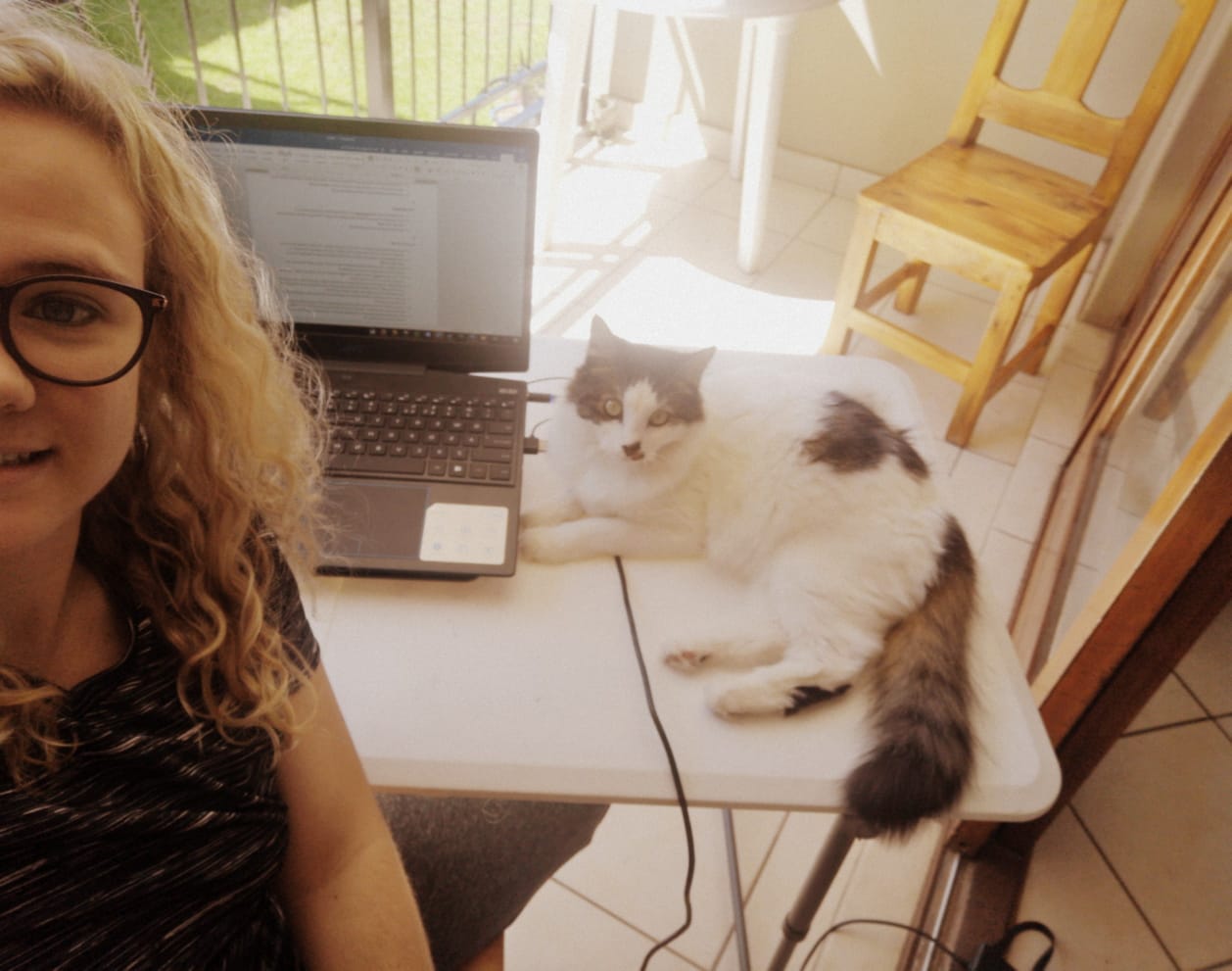
There are downsides
Still, the Rabbits had their share of frustrations with the new arrangement. Tim feels like he's been missing opportunities to further his career:
I do think WFH has disadvantaged me somewhat. I am highly social, a leader and full of ideas. In a remote session there is no organic way to interact with the big dogs and make an impression, which I feel i could have done in a traditional environment.
Another Rabbit noticed that, especially in the beginning, we were afraid to set boundaries and were taken advantage of. This resulted in unreasonable meeting times, ostensibly justified by accommodating contractors from a variety of timezones:
We would for example have standup at 6AM, and retrospective starting at 5PM on a Friday. Most of those things were more of a problem in the beginning of lockdown. Everyone was still scared to set boundaries and it was still a new problem. And it does still seem to be occurring today.
Some of the downsides of remote work that Dion experienced are:
Working from home, the day becomes a blur. I quite often sit down in the morning and only leave my desk for a body break or to eat — when I remember! I could be working for any company that allows remote work. I can’t read body language when people are communicating online. SA’s unsteady electricity and WiFi grid doesn’t help. If you live with multiple people, there may be too many distractions for you to work uninterrupted. And spontaneous ideas that used to be sparked by smart people having coffee or lunch together doesn’t happen often.
Hell is not other people
Like many other Rabbits, Tirzah feels that working from home has been lonely and that being cut off even impacted her creativity:
What I missed about working in-office has been human interaction and idea generation — community. I get energy and inspiration from my surroundings. Cabin fever is a reality.
Nooraan echos that loneliness is an issue, and adds that in-person work-related interaction felt more efficient than the asynchronous online mediums we've adopted:
I miss the socialising and I've felt pretty lonely working from home. It was much easier to be able to talk to colleagues about work and ask questions when they were sitting right next to me and I didn't have to set up a meeting or wait for them to reply to my email.
Reinhardt also misses the efficiency and energy of in-person problem solving:
No more do we casually walk over to someone's desk for a 5 min coffee and catch up. Or even discussing complex bugs with colleagues that might have been done at a white board in the past, are now just another screenshare that you look at.
Tim has had to make a conscious effort to overcome the downsides of isolation:
I found that I MUST exercise to stay sane. I also had to force social interaction and get to know people, even remotely.
The sustained effort of forcing social interaction can be taxing. And seeing people online, while better than nothing, is not a fulfilling substitute for meeting in-person to everyone. This has taken a mental toll on some:
Working from home has a large impact socially as you never leave your house. You interact with a lot less people. When we were at work we could simply interact with people; this is very important for me, and 2 years of WFH has had a huge impact on me, mentally.
On the other hand, a software company is bound to have its hardcore introverts who welcome the lack of people. Linky joined our graduate program during lockdown, so she went from having a lot of social interaction for the first three months to being home alone, and found the experience positive:
It was somewhat fun to see people everyday but also draining. When I started working from home, I couldn’t be happier, and I could wear my natural resting face without someone asking if I’m angry or something. Working from home is the best for me because I can be myself.
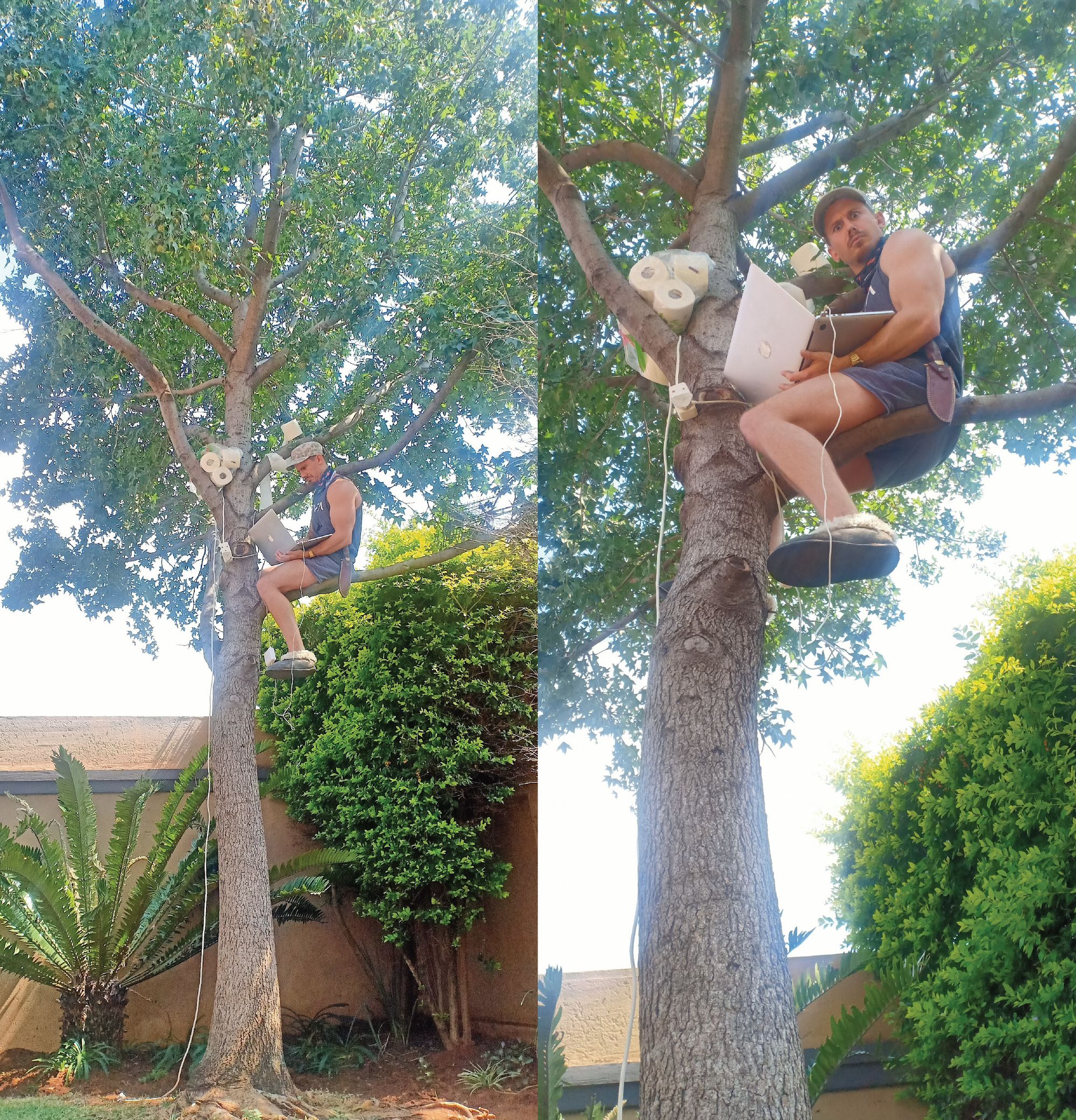
Hybrid: the best of both worlds?
Unfortunately, productivity did not rise uniformly across the board when we went fully remote. Certain types of work benefit from tight collaboration, and our UX designers especially voiced their frustration at the loss of inspiration and energy that came with working alone. For this reason, some of us, such as Tirzah, prefer a hybrid arrangement:
Generally I think working in an office or at least having some days in an office is better than working from home.
There are obvious downsides to in-office work as well, and Dion's opinion is that a hybrid arrangement allows us to manage those downsides and find an optimal medium ground. He also highlights that "hybrid" isn't a rigid arrangement, but rather a philosophy:
My preference and choice is hybrid. We can continue to reap the benefits of both remote and office work while managing the disadvantages thereof. Hybrid in my opinion is not prescriptive (e.g. 3 days remote and 2 days office); it is a philosophy to say that we trust our people enough for the team leads to manage their teams in a manner that ensures we reap the benefit of having beautiful offices when we do need to be physically together, or to take the lead in arranging for physical space in a coffee shop or restaurant while taking into account peoples preferences for remote vs office work.
Reinhardt feels that a single office day now and then goes a long way towards maintaining productivity:
Working from home, initially you definitely do have the potential to be more productive. But it comes in waves. After a couple of weeks of working in the same building where you sleep, eat and relax, it can cause a noticeable dip in productivity. I have found that then it is essential to get out of the house and go work in the office or at a coffee shop for a few days, or at least for 1 day to sort of "break the cycle" of feeling less motivated.
End of the office era?
One of our Rabbits is stationed at a company that's starting a hybrid arrangement, where teammates are asked to visit the headquarters for a few days every couple of weeks. She says that, after being away for so long, the physical office building feels jarringly excessive, especially in the context of the current socio-economic situation in South Africa:
I've always kind of felt like office spaces are unnecessarily excessive and the pandemic has just highlighted that sentiment. The amount of energy this building consumes and has consumed while it's been basically standing empty for the past two years as well as the cost of maintaining this space is staggering. You can't help but juxtapose that against the unemployment rates and poverty. I know it's not this company's responsibility to solve SA's problems but it does feel like there's a better way to spend that much money.
Also, remote work definitely seems like the more sustainable, preferred way to move forward. Which makes this insistence that we use the office feel like someone trying to convince themselves that they really like the expensive pair of shoes they paid too much money for even though they're hideous. This building feels to me like that bygone relic you see lying derelict and empty in dystopic future movies. Like what use could future us possibly have for this space aside from, against better judgement, trying to loot it and running into a swarm of zombies?
While the specific setting bothers her, she acknowledges that we all indulge in similar excesses, albeit at a personal scale. There is also real value to face-to-face with her colleagues again; she calls it "the energy of other people":
I am the biggest people-hating introvert you'll ever meet and yet I'm so grateful to be in the company of my colleagues when I'm here. It feels healthy for my psyche.
We've also seen our own offices remain mostly empty at Retro Rabbit, even after we re-opened them to our employees in a Covid-safe way. Our response to this has been to close our beloved Braamfontein office. It was a sad choice, but we believe it was the right one. We are keeping our Pretoria headquarters open, as we do still get some use out of it, while also allowing Rabbits to work from home.
The visibility gap
It's still early days for widespread remote working, but there are speculations that we run the risk of widening a "visibility gap". Certain demographics — often minorities and women with children — are more likely to embrace fully remote work, while others are more keen to return to the office. The danger is that already-advantaged groups, who are more able to make the commute and less subject to hostility at the office, will increase their advantage by simply being more visible, while groups that are already marginalised will experience more exclusion. One of the Rabbits shares her opinion:
It's a risk, yes, but it's highlighting something that was already happening to a lesser degree. Some people have always had the privilege of being able to come into the office early or stay late, and their careers have been benefiting. Meanwhile, other people are not comfortable with this; for example there are minorities who feel unwelcome, women who feel unsafe, mothers or heads of families with responsibilities back home, and so on.
But now that it's been highlighted by this shift in dynamics, we can address it more intentionally. We can craft our events explicitly to be inclusive of the remote work force. When we have hybrid meetings with a group of people sitting together in an office, rather than giving that group a single laptop, it's better for everyone to be "pretend remote", each on their own laptop, so that everyone communicates with each other over the same medium, even if it's just for that one meeting. Mediating and facilitating meetings becomes a very important job; we must ensure that the co-located group doesn't get carried away and speak over the remote participants.

New arrangements, new culture
As custodians of Retro Rabbit's culture, the Movements were tasked with working out what "culture" would even mean, post-lockdown. Where we used to lean heavily on social interactions, everything suddenly shifted online. Moving our Tech Talks to Zoom was relatively easy, and if we're honest, probably an improvement over the in-person talks of the past. Finding fun social activities for the new world was more of a challenge, but we think we came up with a few really good ones; see our online, MasterChef-tutored cooking classes as an example.
With regulations easing off, we're slowly returning to more in-person events where it makes sense, while keeping others online where it worked.
New Rabbits, new culture
Retro Rabbit's culture has always leaned heavily on social interaction, so it makes sense that the old-timers would feel the void now. But going remote has also posed some unique challenges when it comes to expanding the Rabbit family. James, who heads our graduate intake program, explains:
Working from home, as it relates to the grads specifically, has made it immensely difficult to effectively provide adequate feedback and support to people who require extra attention, especially at the beginning of their careers. To further compound matters, the grads have been effectively working traditionally for the beginning of the program — i.e from the office everyday — while the rest of the company is working remotely. The opportunity for them to engage with the rest of business is severely limited. Add the lack of in-person events, and this effectively results in the grads forming their own culture.
Without previous social-heavy experience for comparison, one of last year's new hires — from the first batch who joined an already-remote Retro Rabbit — found it easy to adjust:
Having joined the company during lockdown, I had no frame of reference of how work was supposed to feel. So I imagine that for experienced employees, WFH felt quite weird and new, but it became more or less of a norm for me. Working from the office actually feels like a special occasion in a way.
Still, even those who prefer working from home, like Linky, appreciated the social aspects of the graduate program:
By nature, I am introverted but going to the office for the first three months for the grad program allowed me to meet fellow grads and a few older rabbits, and to socialise a bit more.
On the hiring front, potential new employees generally prefer to work remotely. This is what Dory, our internal recruiter, has been seeing:
Some people will ONLY look at WFH opportunities at the moment; they are pretty adamant that they refuse to go into an office. On the other hand with Retro being very flexible, some new recruits don't mind going into the office from time to time. We have new starters that stepped into the office and decided that office work now and then isn't the worst thing in the world. Being able to give potential rabbits a choice between WFH or using the office (it's up to them and the client) is a big plus.
Home office woes
The role of an office, in addition to offering co-location of colleagues, is also to provide infrastructure. Now that we work from home, we're each individually responsible for our own supply of electricity, internet, and office furniture. Our exposure to poor service delivery—a reality in South Africa—is no longer solved at a single point.
Good internet is a necessity around the clock, and Retro Rabbit offers a stipend for employees to make provisions at home. Luckily, everyone we talked to could manage a connection, as long as the power was on.
Some Rabbits dealt with load shedding by temporarily relocating to places with power and WiFi:
It's usually an opportunity to work from a coffee shop for instance, which does take you out of your comfort zone a little bit, but it's a nice experience looking cool and busy in a Starbucks for once instead of scrolling aimlessly on a phone.
Some preferred to use the Pretoria office, which was made available for this purpose, when the lights went out at home. Scheduled load shedding can be planned for, but we found unscheduled outages to be very disruptive. Tirzah says:
"Surprise load shedding" also made it a lot more difficult to have meetings or submit work. Somehow, outages also affect signal in South Africa because I would not even be able to use my data at some points.
A dedicated few went as far setting up off-grid solar solutions at home.
On the plus side, we had some savings in our budgets from no longer having to commute, not to mention the home office tax break from SARS, so we had a bit of fun redirecting some of those funds into setting up and showing off our home offices. We even turned this into a competition!
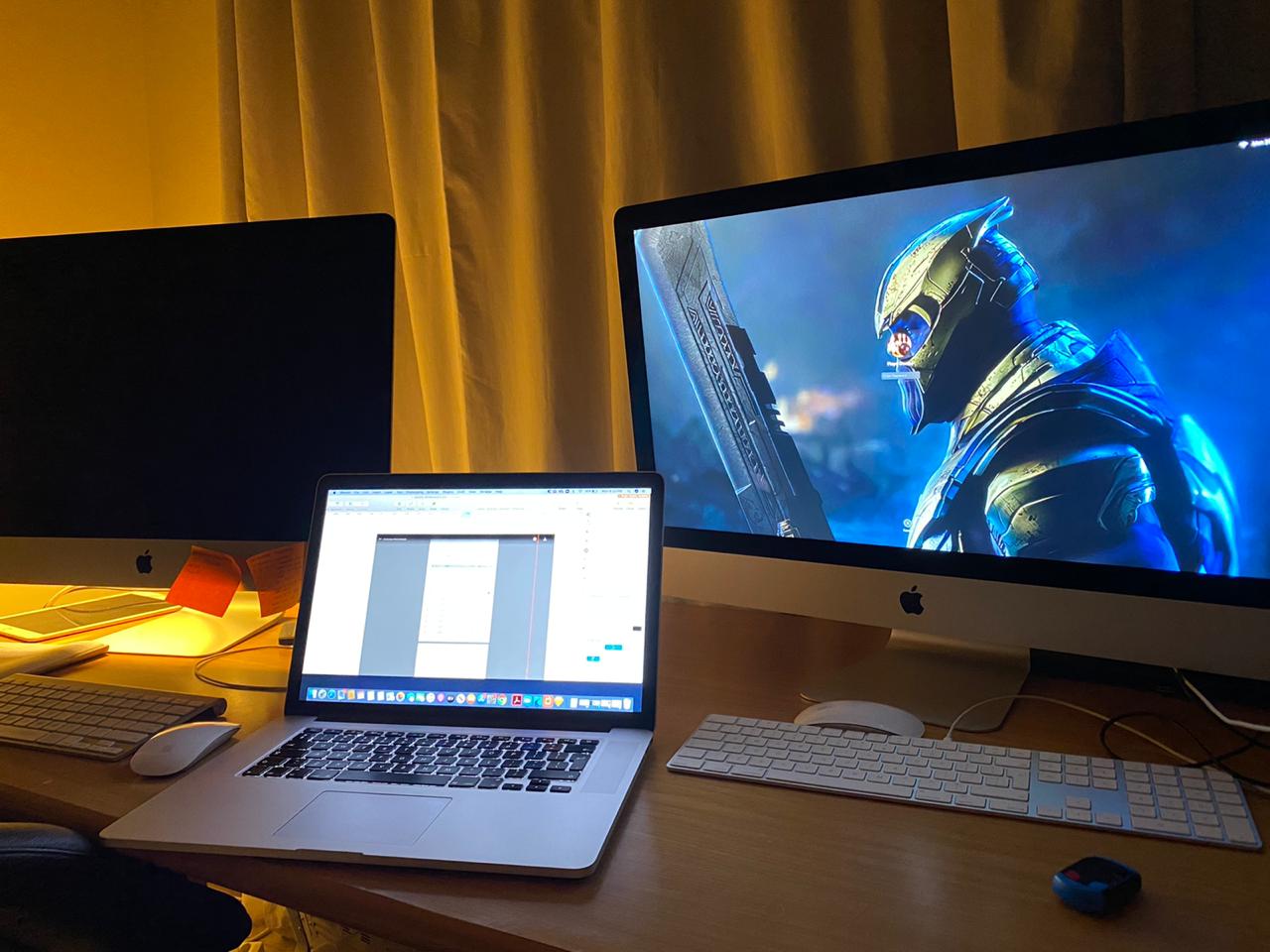
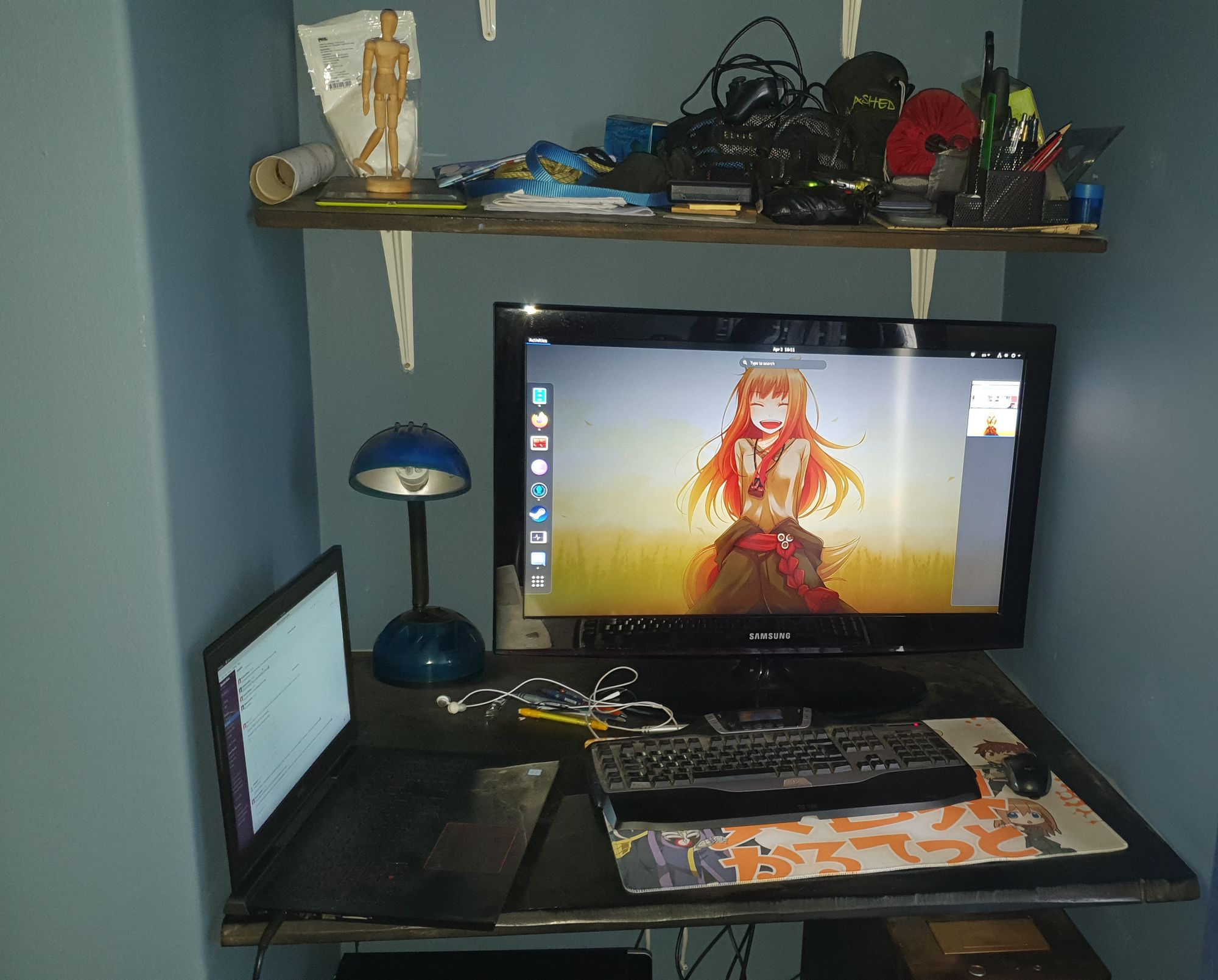
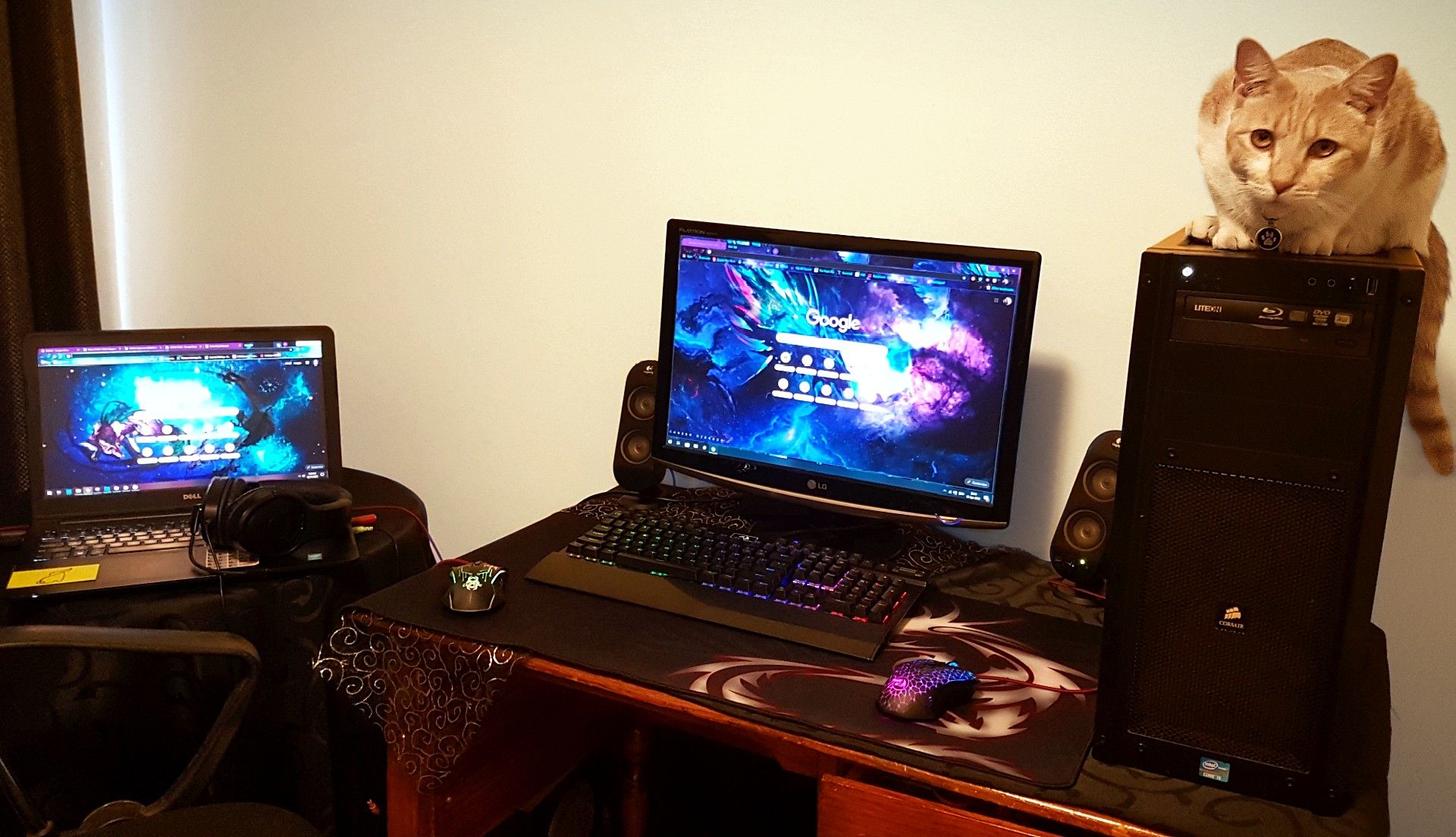
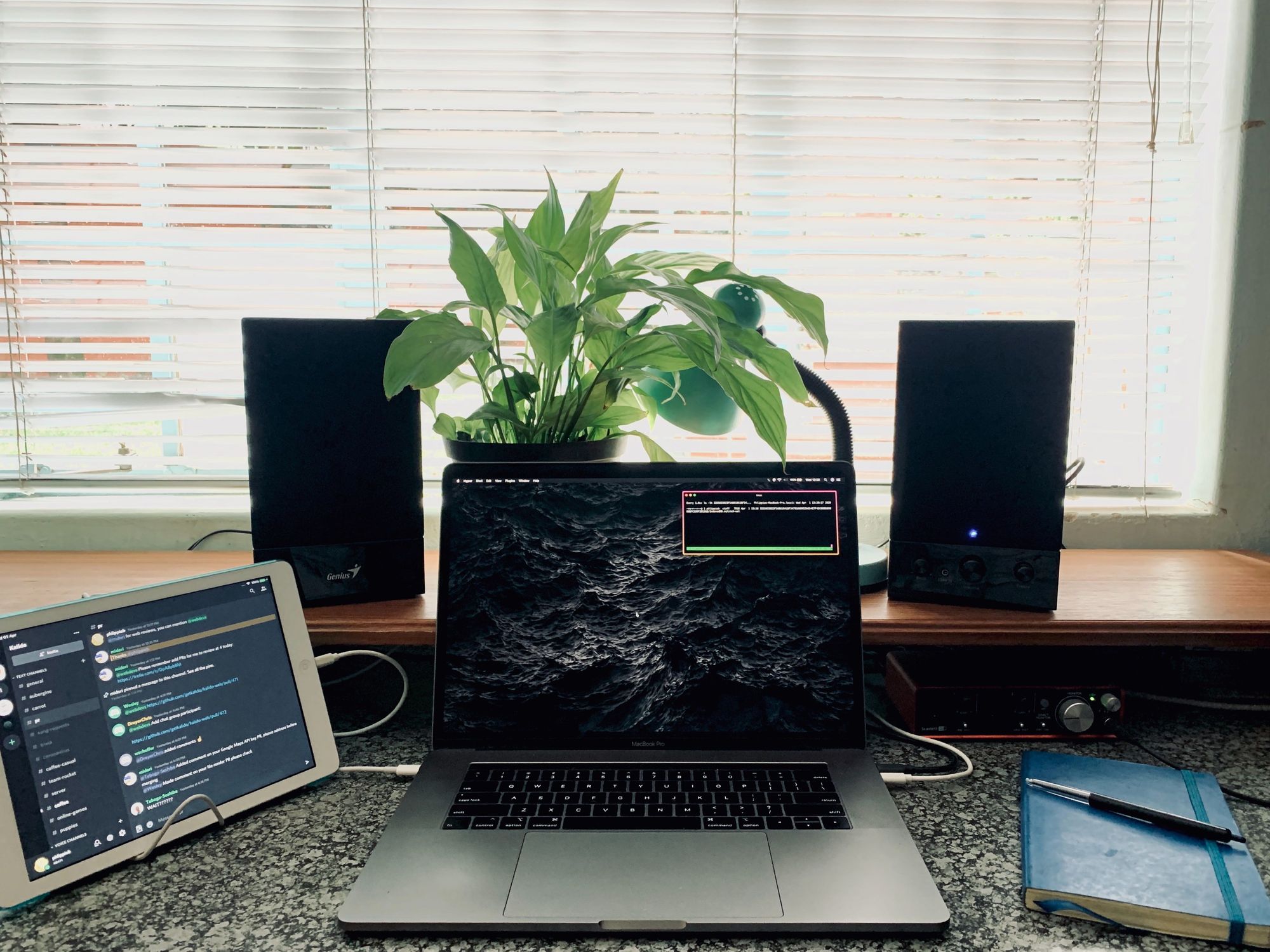
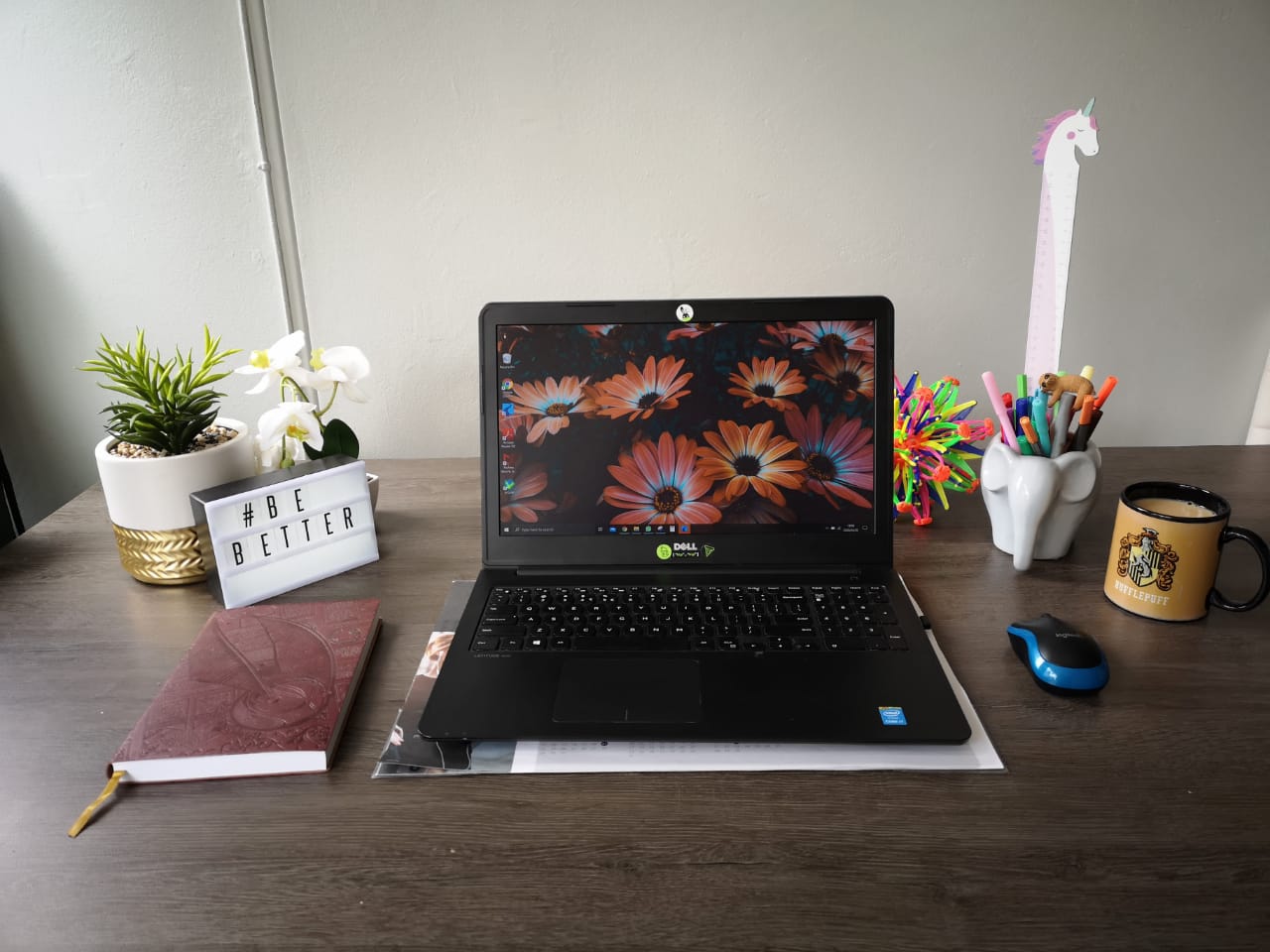
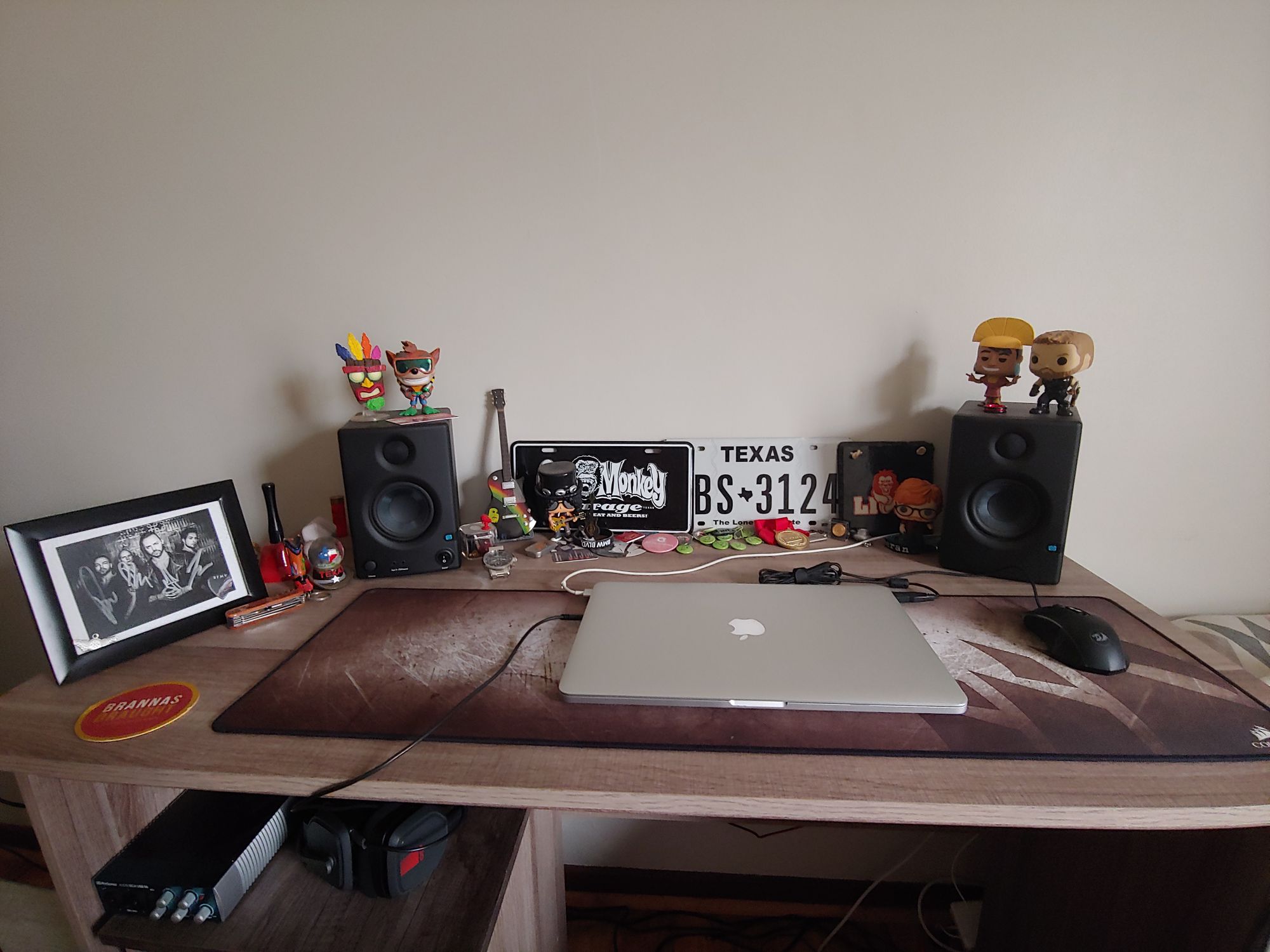
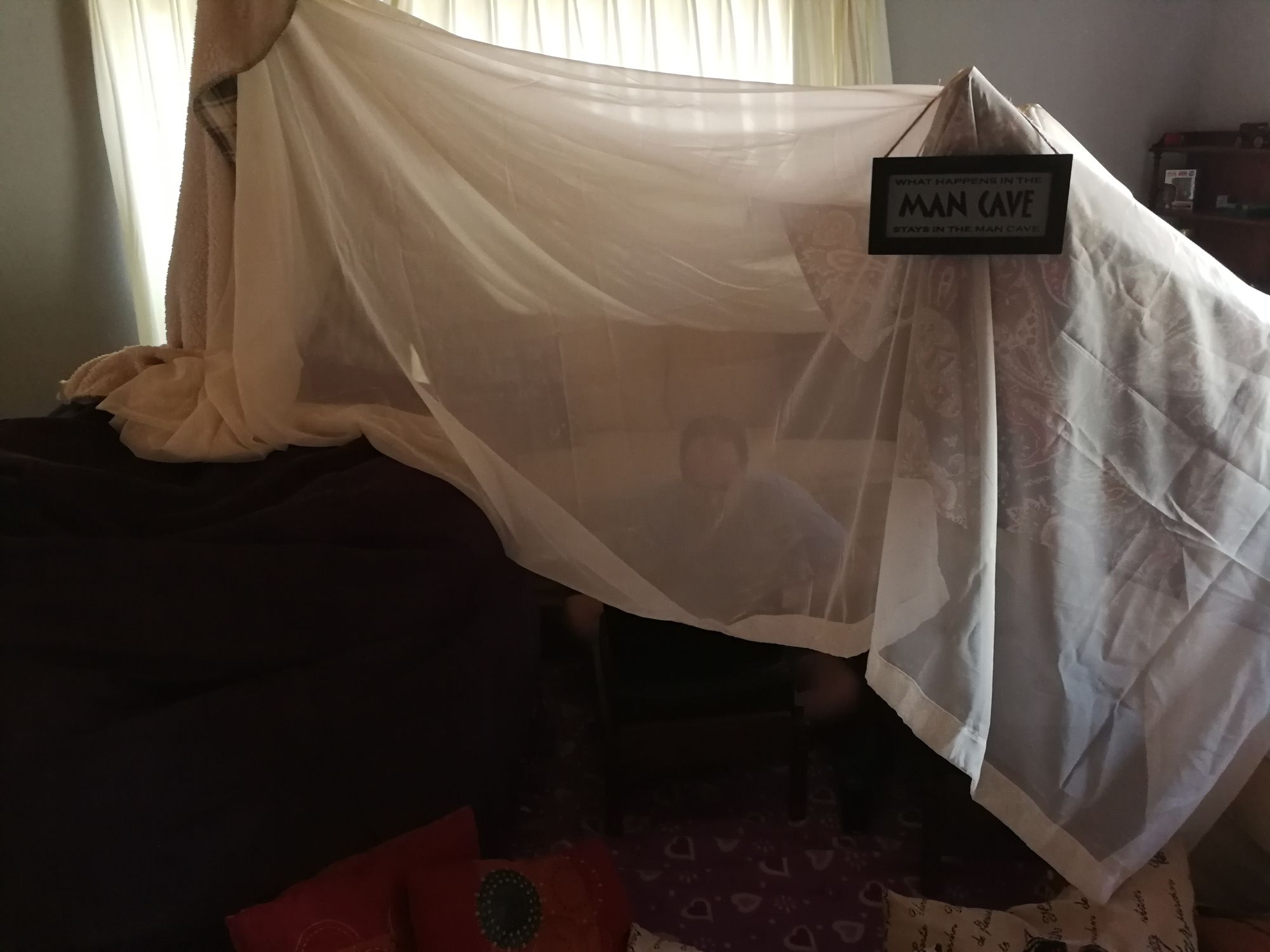
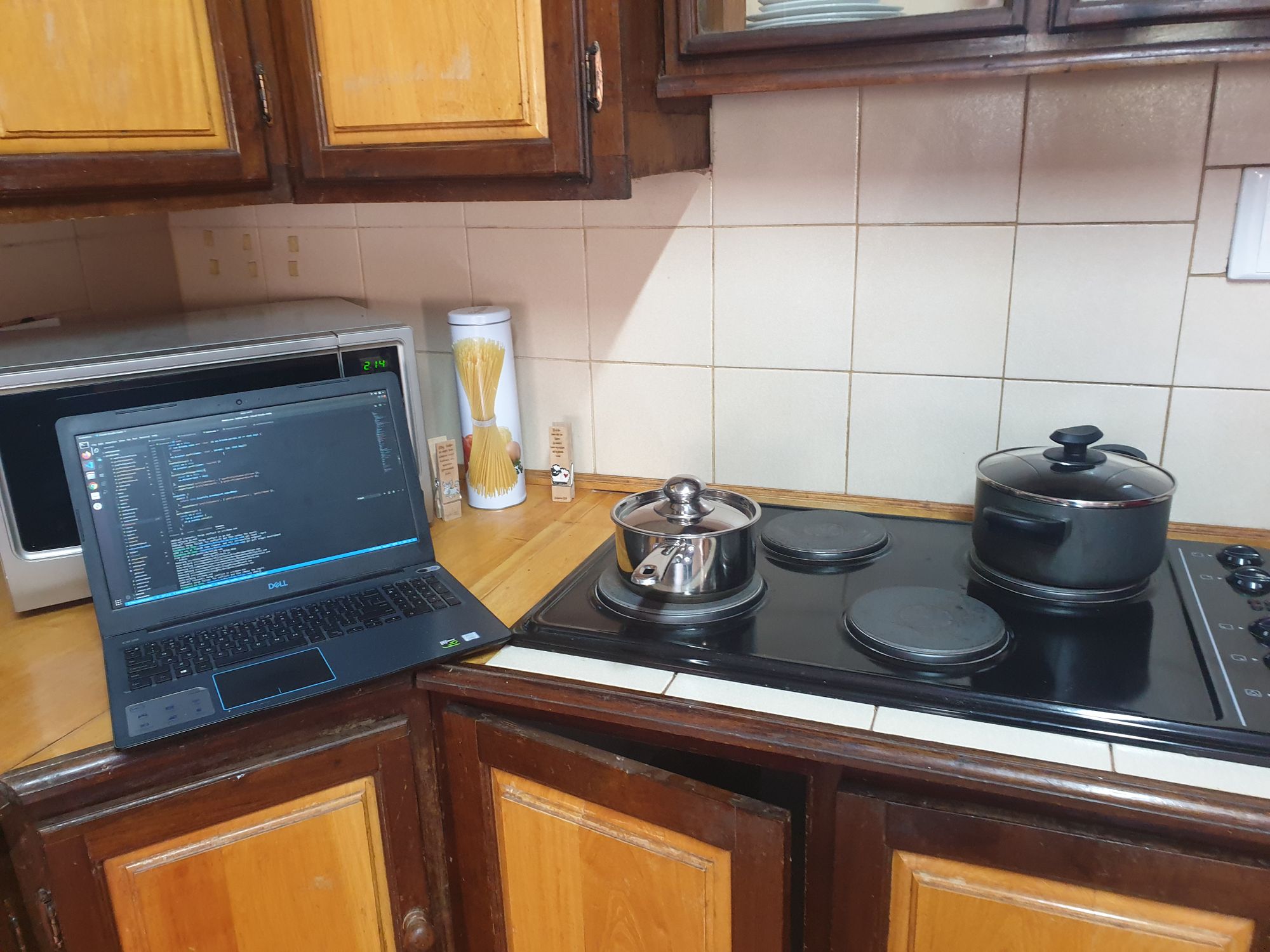
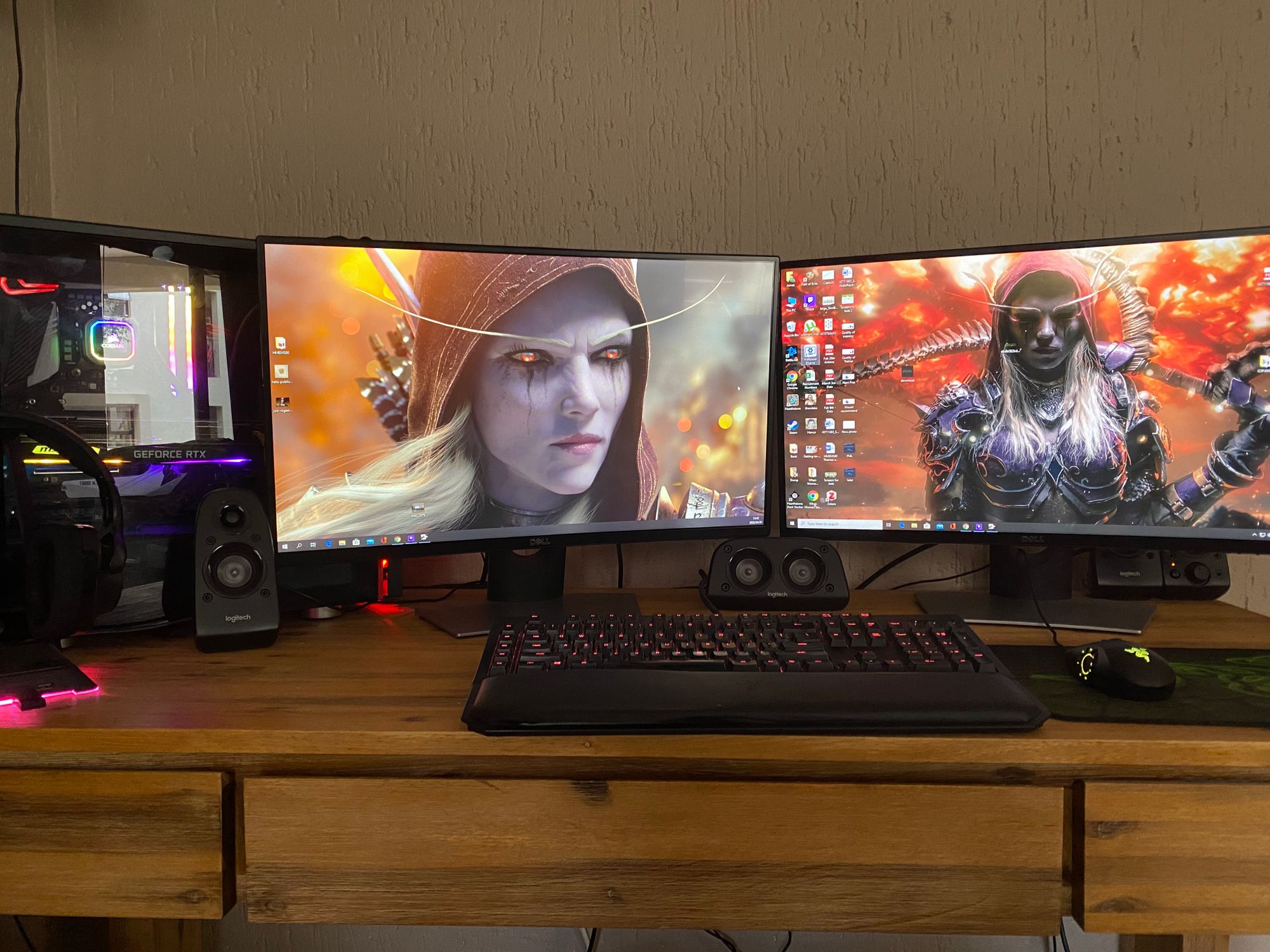
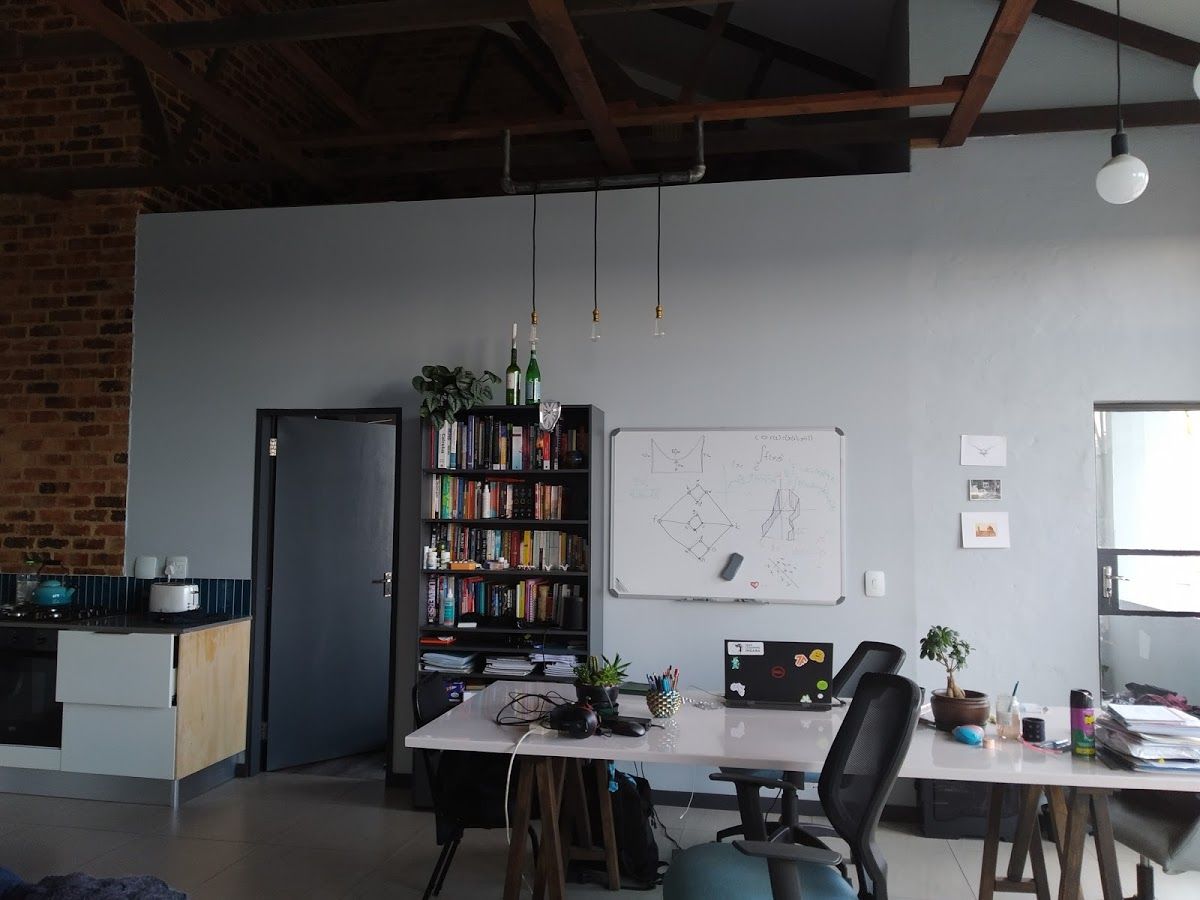
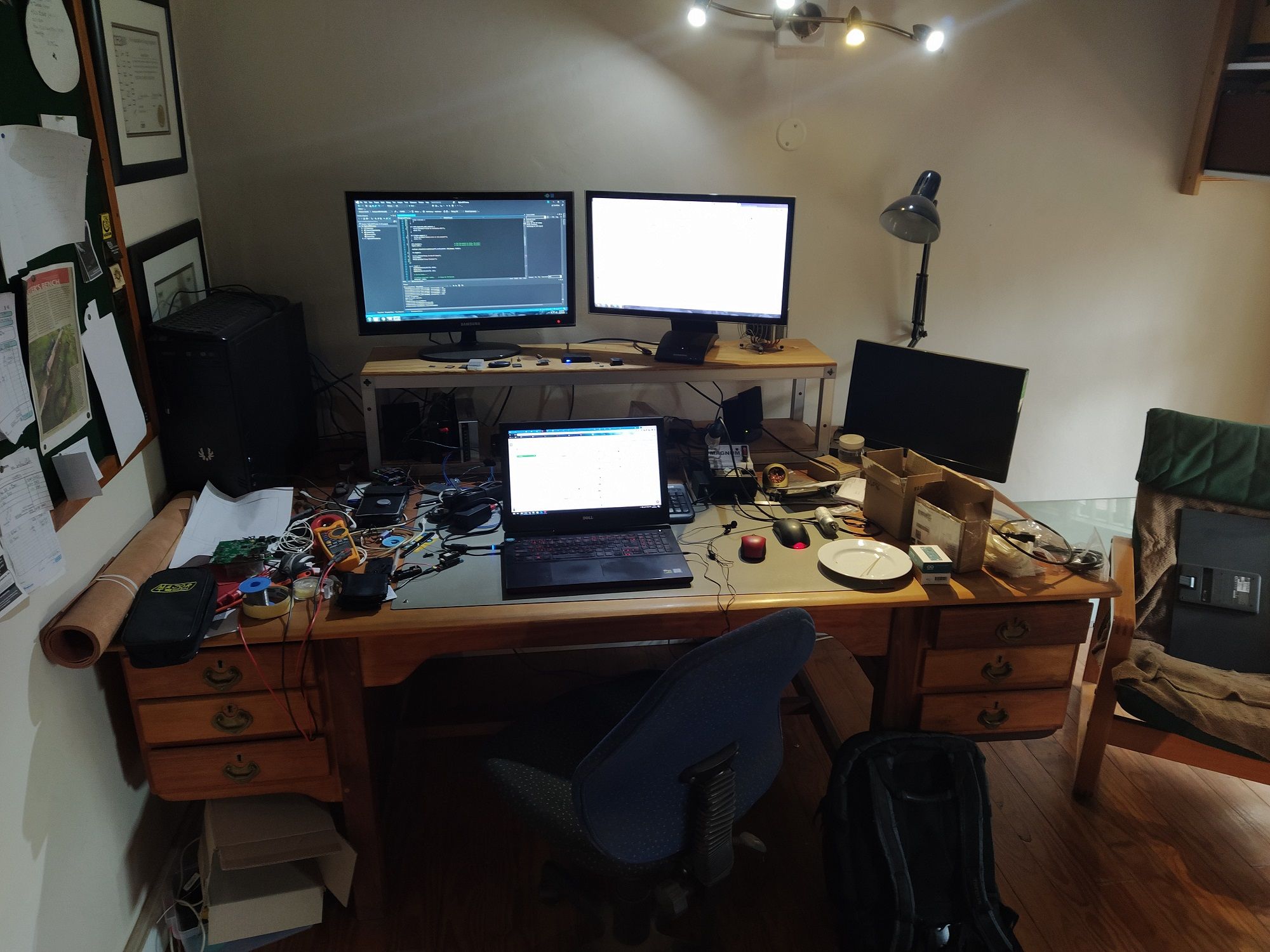
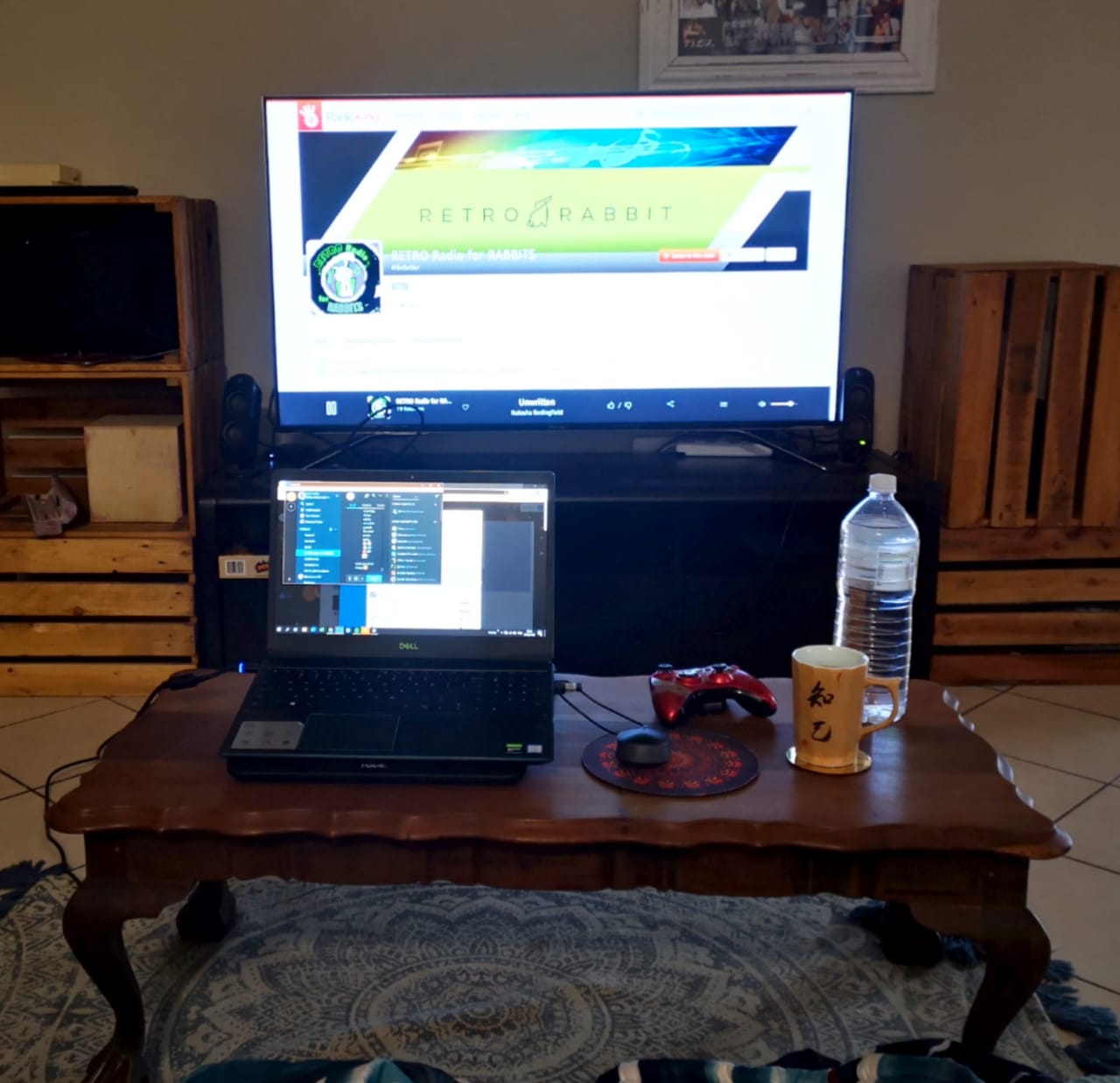
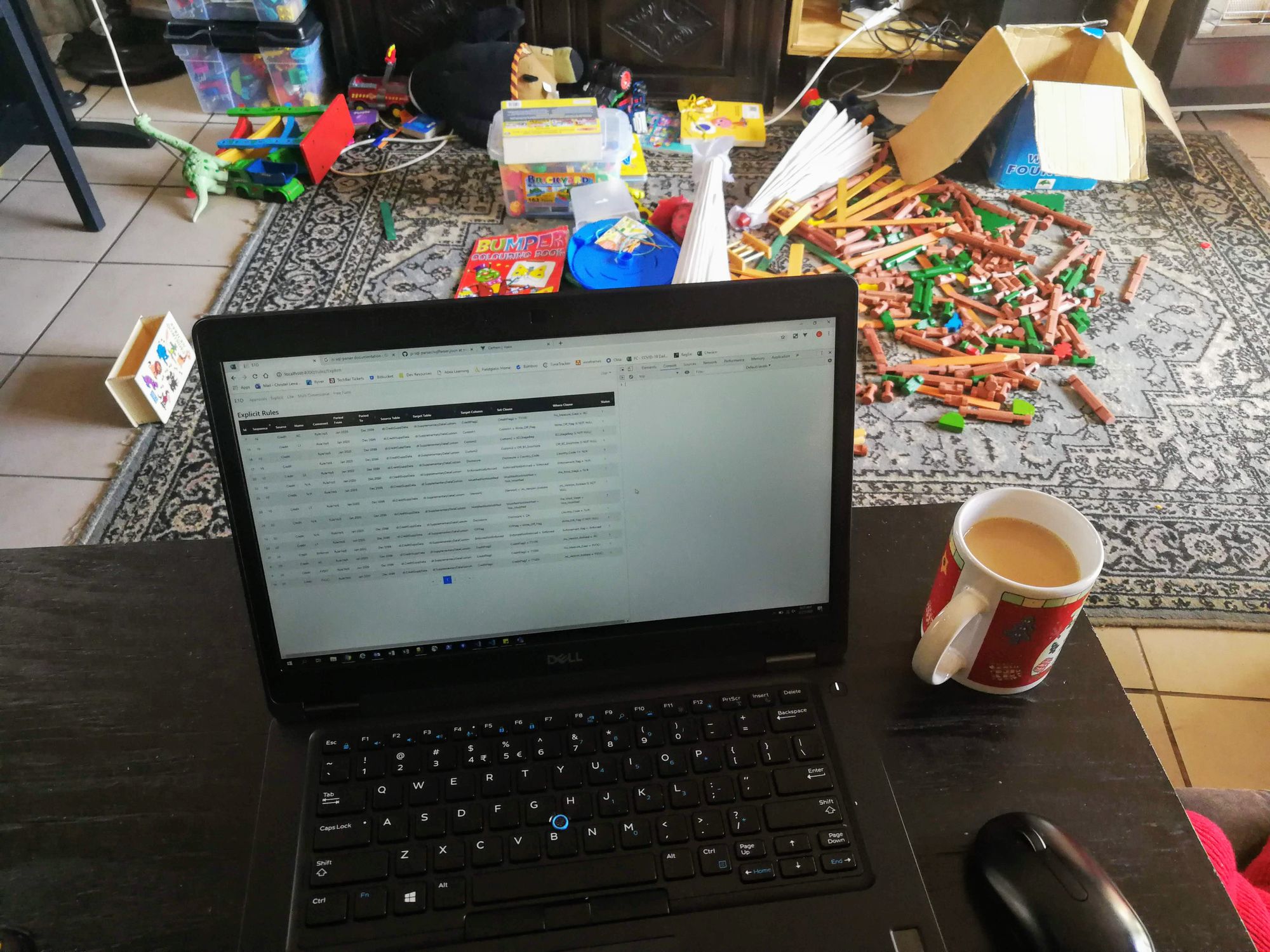
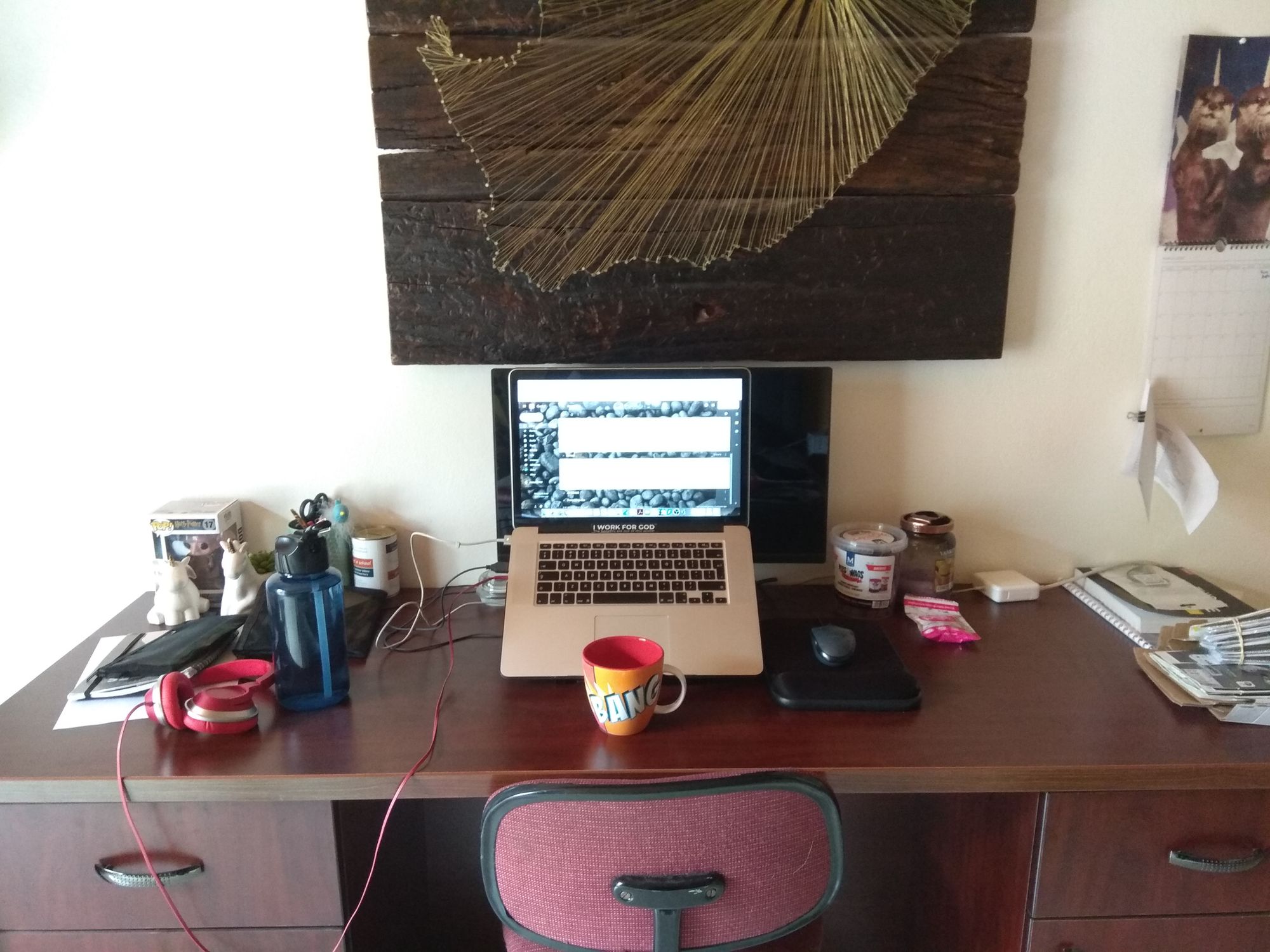
Learning to take full advantage
Working remotely does not just mean working from home. We actually have the freedom to set up office wherever we want. This can mean making day-to-day decisions to work from the living room, the local coffee shop, or the Retro Rabbit offices, depending on our moods, as Jade explains:
I started to move my office location based on how I'm feeling that day. I start the day with introspection, by identifying how I feel: do I want to be around people today? Then I action it. Some days I'll work from a coffee shop with a bunch of friends from different companies and industries. Sometimes, if I'm unfocused and unproductive, I'll choose to do something else that's valuable aside from coding, so I'll make my way to the office to see my colleagues. Sometimes I'm too tired for people, and I'll stay home. This is good because I don't have to force myself to align to an environment that isn't conducive to my wellbeing and productivity. I can just change my whole environment. I can also align my work plans to my social plans, now that lockdown has mostly been lifted. If I'm seeing friends in a certain part of town, I can work from there during the day, and then just pop over once I'm done.
But the possibilities go beyond these micro-migrations. In fact, as long as we're not needed in-office by our clients, we can work from anywhere in the country, or even in the world. As Jade puts it:
We also started working from different parts of the country. I no longer feel like I need to move, as in change my address, to see the world. Travel has replaced moving. We even ordered Starlink so we could try to get really far off-grid, but unfortunately it doesn't work well enough yet.
Tim has also been travel-working, and has plans to get even further off the grid:
I worked from KZN last year, and had to speedily return when the rioting began which was interesting. (Also getting the affidavits and such to travel during lock down at that time was interesting.) I'm planning a dual battery system to power a work station from my Land Rover so I can work from anywhere!
Some of us have thought about this style of work-cation, but worry about finding adequate support and comfort to be productive. We asked Jade how she arranges an effective office away from home. Here are her tips:
Get a set of portable, ergonomically friendly office goodies, like a keyboard stand, laptop stand, and a back supporter that you can attach to any chair. That way you can work for longer at uncomfortable places. Always have an extension cord. Have fallback internet (phone, dongle, portable router, whatever).
It also helps if you have friends who live in different places, especially if they also work from home and have couches for you to crash on; ask them if you can work from their homes. Otherwise, when searching for accommodation, backpackers in South Africa are often work-friendly. AirBnB will specify whether a place has WiFi. Look for a places with good dining room tables and chairs; they’re actually the most comfortable.
And go in groups! More people make for cheaper accommodation; we did a trip with 8 people in Cape Town for a week, with a weekend of relaxation on either side. Your group can range from people on your current team, friends within your company, and just friends in general. Doing a little getaway with colleagues is a good stand-in for the sort of pre-lockdown face time we've all been missing.
For some of us, this sort of thing is easier said than done. As nice as it sounds to have all this flexibility, we stick to what we know, and what we know is a rigid eight-to-five schedule in our home offices. How do we begin to take full advantage of the new status quo? Here are more tips from Jade:
We sometimes have an overly strong feeling of accountability towards the old structures. This probably comes from force of habit, even though our thoughts around it are often incorrect (for example, we might think we should be at our desks and online at 8:00 sharp because this is how it was in the office, while in reality, we might actually have made a detour to the coffee machine first). So we should afford ourselves some space to try different schedules and activities, even during normal "work hours".
Treat your own ways-of-working as an experiment — say "let me try this and see if it works". Pair this with mood journaling and time tracking as you go, and then take the long view and evaluate the impacts of your experiments; for example, how did I feel and perform when I was frequently working from Starbucks or from my uncle's beach house? Optimise for your own wellbeing along with your productivity, because both are important.
Sometimes there's a fear of not meeting our targets. But what is a "work hour" anyway? It's probably better to think in terms of the quality of work we produce, rather than the time we spend in a seat. If you're not in a productive headspace, are you "meeting your target" by dragging your cursor around for an hour rather than getting out, getting some exercise, and coming back feeling fresh? I've started gymming at odd hours, like at 3 PM when I have a slump. I’ll often want to work again when I get back, or otherwise feel more refreshed tomorrow.
If you're a team lead, you should trust your team and encourage them to find out what works for them as individuals. When I was in Kenya, quite a few years ago, my lead couldn't believe how much I went out in the evenings; he expected it to make me unproductive during the day. Then work got stressful and I stopped going out, and to his surprise, my productivity dived. Even though it would never work for him, he told me that he thinks I HAVE TO go out to be an effective worker. He had to trust me that what I'm doing works for me. And it's my responsibility to know myself and find my rhythm.
Retro Rabbit will allow you to control your own schedule; that's part of the reason we use our in-house product, Senseflow, to track our work. And clients are usually open to this as well, because the outcome for them is that you produce better work. It's important to keep communication lines open though! Be upfront with your team lead about what you need, and when you try something new, invite feedback from your clients on how they perceive the impact on the quality of your work.
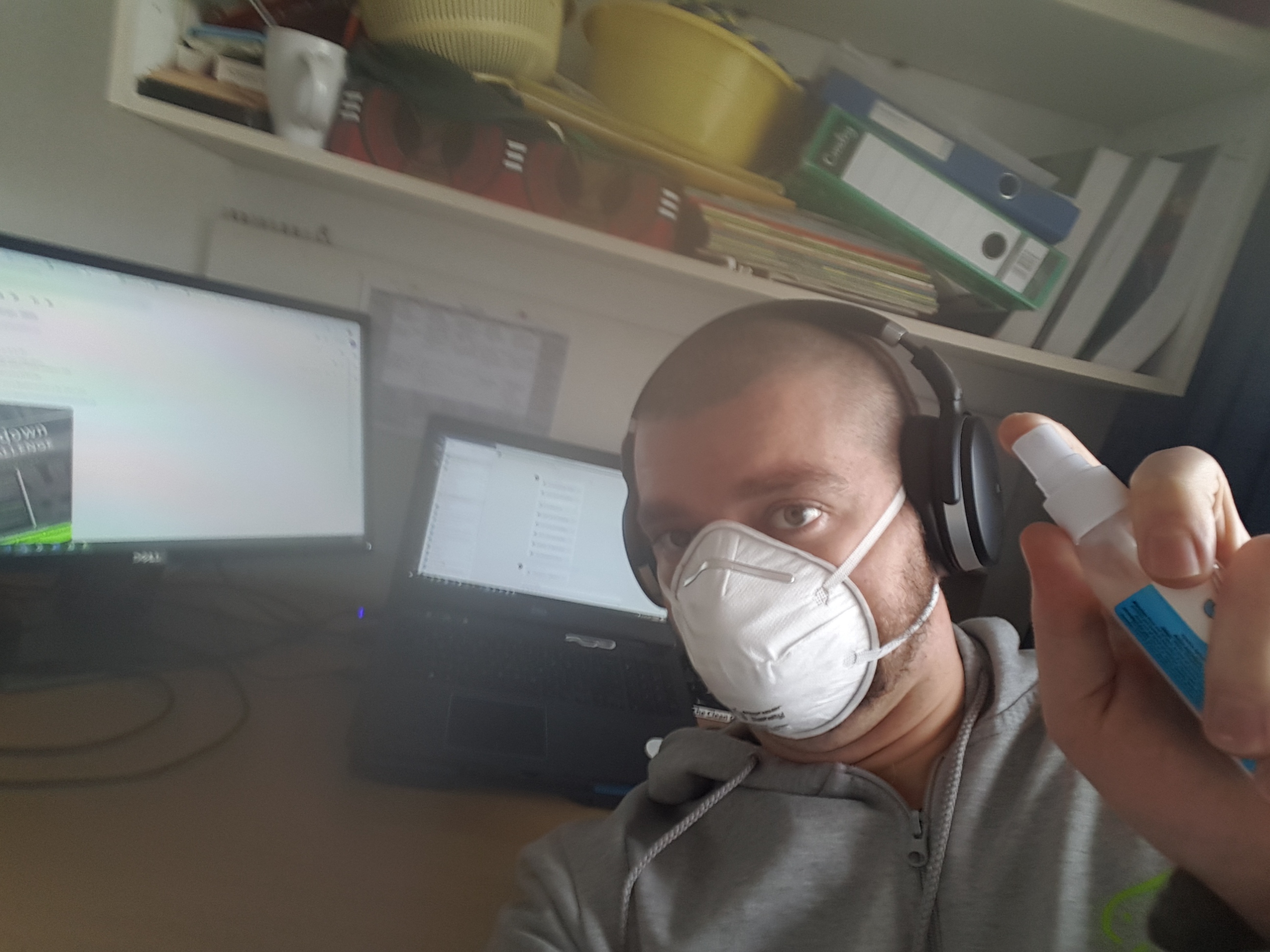
The future of Retro Rabbit is hybrid
Some closing words from Dion:
To be part of Retro is more than just the name on your monthly salary deposit - it is about being part of a group of smart, motivated people who take pride in being called Rabbits and in our home at Rabbitania. It is about embracing agility, and leveraging our various strengths and diversity to be part of something bigger than any one of us. So in this Hybrid model, we will have the monthly Friday get together in person (while regulations allow), and will restart our pre-pandemic in person activities.